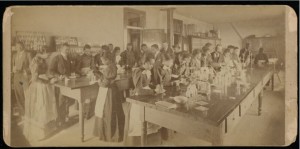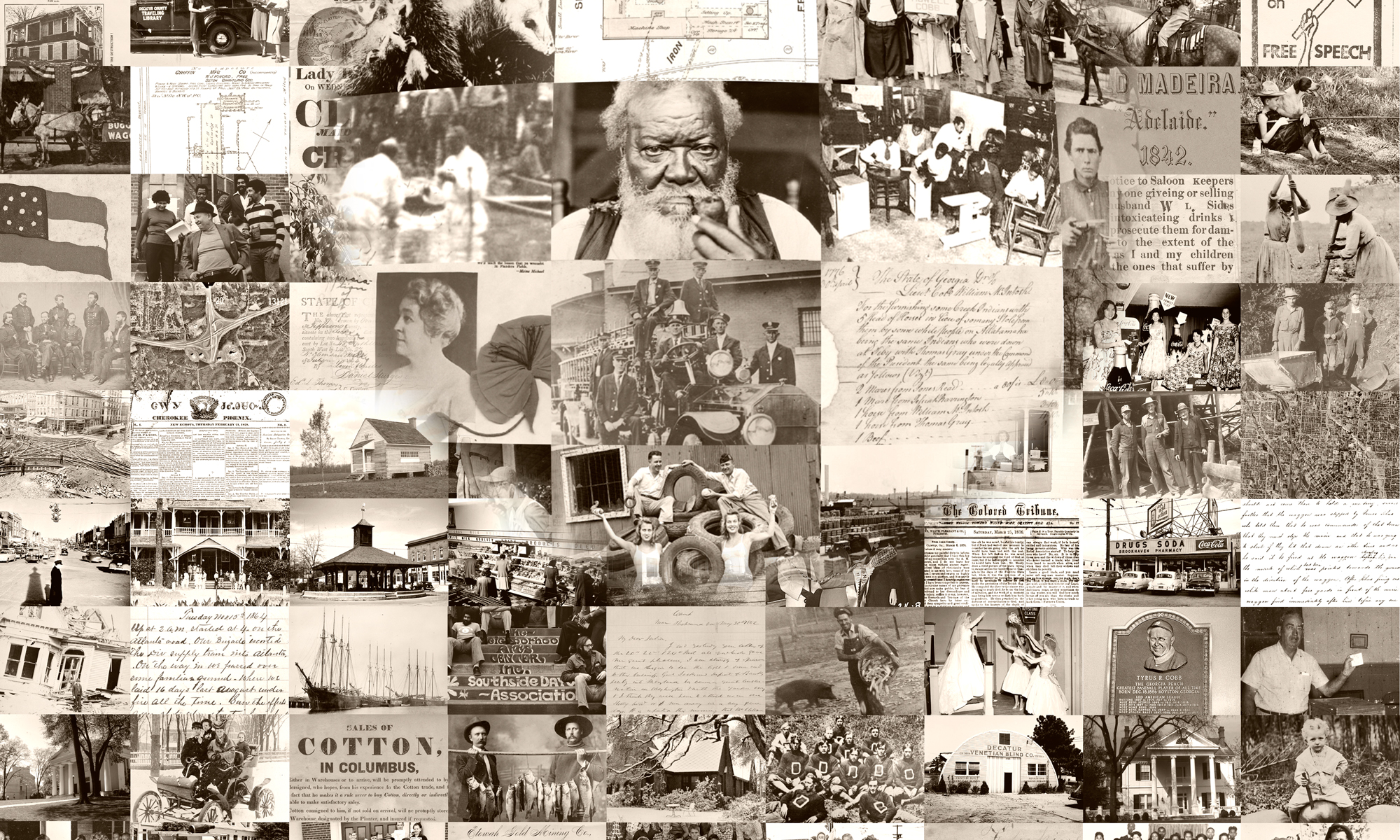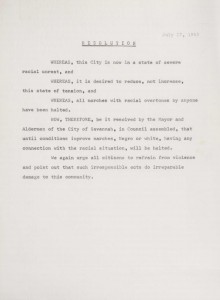
We are excited to announce a new partnership with Atlanta University Center, Robert W. Woodruff Library, and the arrival of three new collections that provide us with documentation of the history of the largest consortium of African American private institutions of higher education:
- Atlanta University Photographs (Late nineteenth and early twentieth century photograph collection that documents the history of Atlanta University, its students, alumni, and friends)
- Clark College Photographs (Late nineteenth and early twentieth century photograph collection that documents the history of Clark College, its students, and alumni)
- Interdenominational Theological Center- Gammon Photographs (Late nineteenth and early twentieth century photograph collection that documents the history of the Interdenominational Theological Center with items representing Gammon Theological Seminary)
Christine Wiseman, Unit Head, Digital Services and Derek Mosley, Assistant Head, Archives Research Center at the Atlanta University Center, Robert W. Woodruff Library hope that an international audience will view these new collections and plan to come to Atlanta to do more research. With the online availability of these collections, Wiseman and Mosely note:
“New researchers will have the opportunity to begin their research even before they come to the physical archives. The newly digitized photographs document individuals, events, athletics and buildings, enabling new users to acquaint themselves with the historic campuses of what is presently known as the Atlanta University Center. Current users can view historic photographs of the Atlanta University schools as they research specific periods and possibly find images of students, faculty, and staff that they may not have been able to uncover prior to digitization.”
These collections represent the customs and culture of institutions of higher learning in the nineteenth and early twentieth century. Wiseman and Mosley recommend looking through the photographs in these collections that relate to student activities: “You can see how differently students dressed as compared to today, and the images showcase how formal education and even extracurricular activities were during that time period.”
We hope that you spend some time with these new collections, and welcome the Atlanta University Center, Robert W. Woodruff Library as our new partner.


